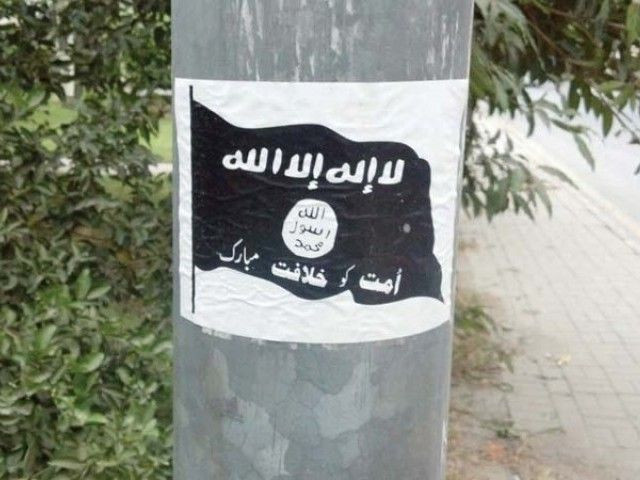The state of insecurity
Authorities in Punjab have issued a warning of possible attacks by the Islamic State

Politicians, sensitive installations, media houses possible targets. PHOTO: MUHAMMAD UMAIR/EXPRESS

Specifically, does the IS have a presence in Pakistan or not? There is no clear-cut answer. A home department official said in relation to the alert that while Da’ish (a nomenclature in increasing usage) was “not itself present in Pakistan”, there were factions within the banned Tehreek-e-Taliban Pakistan (TTP) that were “inspired” by the IS in the Levant and the Maghrib. Thus the IS may not have an office in Pakistan in the same way that the Taliban (Afghan franchise) has an office in Doha, and it may not have a directly-controlled, as in controlled from Raqqa, arm in Pakistan, but it does have a ‘presence’ in a non-corporeal sense. That ‘presence’ is as indefinable as the IS caliphate, which is essentially a state without borders or a unified central governance, a redefinition of the concept of statehood.
Those elements of the TTP that have aligned themselves with the IS are not some rag-tag assortment of criminal spin-offs of Taliban groups or rogue players; they are part of a trained and battle-hardened network of well-funded and equipped fighting units, some of which have been in the field for close to 20 years. They are prone to factionalism and internal rifts that sometimes play out as full-blown and protracted firefights and they are highly tribalised in their affiliations — but they can and do mount complex operations albeit with reduced frequency within the last year.
What is unclear and will only become clearer with time, is to what extent the IS is able to exploit the latency within the broader canvas of extremism in Pakistan. Terrorism everywhere, no matter the country or culture, requires a supportive infrastructure to operate successfully. It needs sympathisers and fellow-travellers. People who will store arms and material, build bomb vests, hide fugitives, manufacture false documentation and manage the minutiae that lies behind every terrorist attack. In some populations, such support is spread thin, but in others, and Pakistan is one of them, there is a high level of latency, this clearly evidenced by the recent Pew report that tested Pakistani perceptions of the IS. The IS is reportedly already recruiting and it does not matter if that is directly or indirectly through a franchisee. Its leaflets and propaganda material have been found across the country, including in Punjab to which the new alert relates. It may not have a postal address, but it knows where to send its letters.
The state has danced for too long around the semantics of terrorism, neglecting meanwhile to construct the all-important counter-narrative. A possibly encouraging sign is that it has been decided to finally fully activate the National Counter Terrorism Authority (Nacta) that has been moribund since its foundation in 2009. Again, only time will tell if Nacta is going to be effective and how far its mandate spreads, time in which the IS will be seeking to enhance its traction and presence at the same time as appearing ephemeral. As the IS is re-branding ideas of statehood, Pakistan’s political caste needs to recalibrate the reality of the situation at hand.
Published in The Express Tribune, December 1st, 2015.
Like Opinion & Editorial on Facebook, follow @ETOpEd on Twitter to receive all updates on all our daily pieces.














COMMENTS
Comments are moderated and generally will be posted if they are on-topic and not abusive.
For more information, please see our Comments FAQ